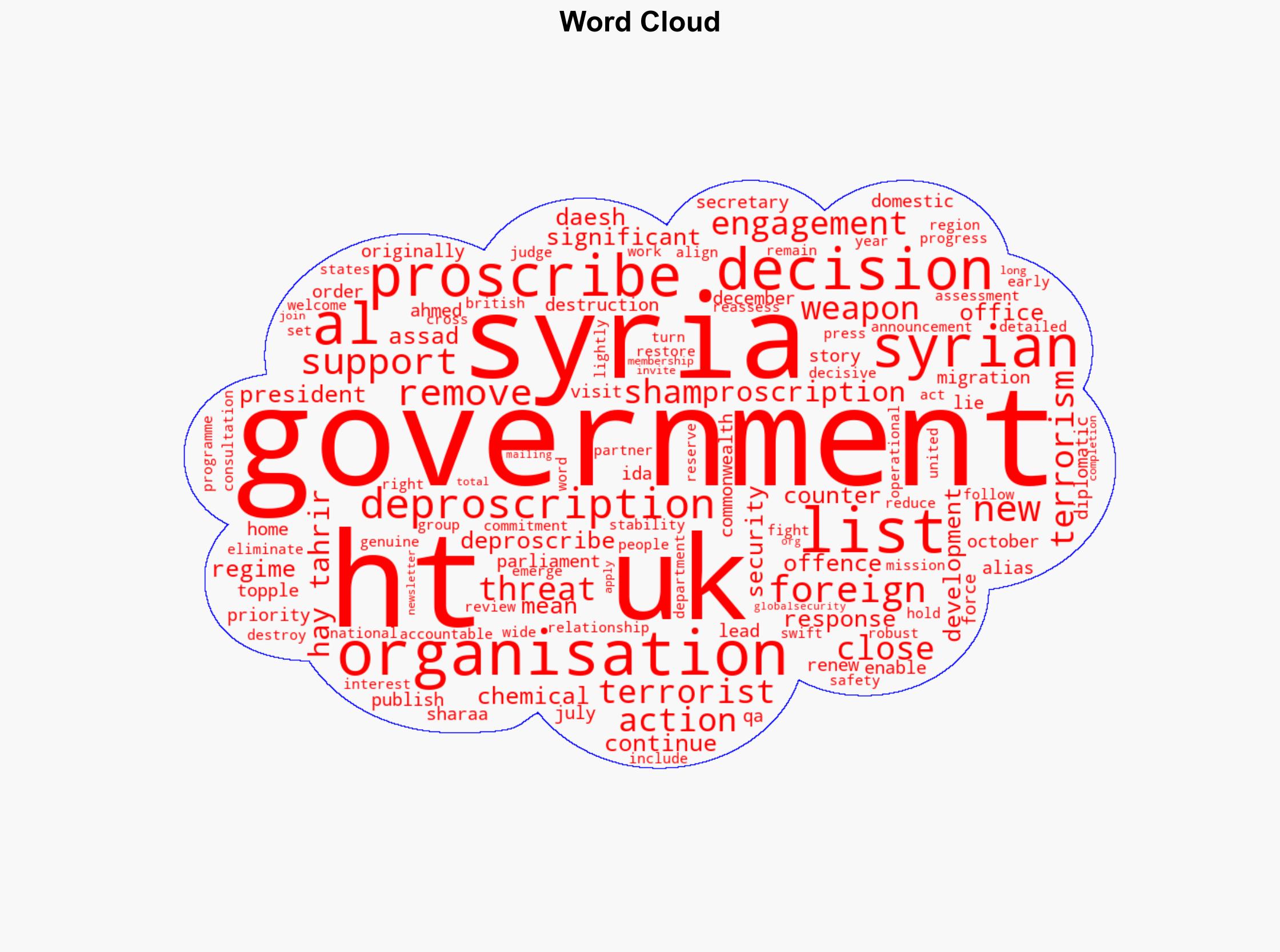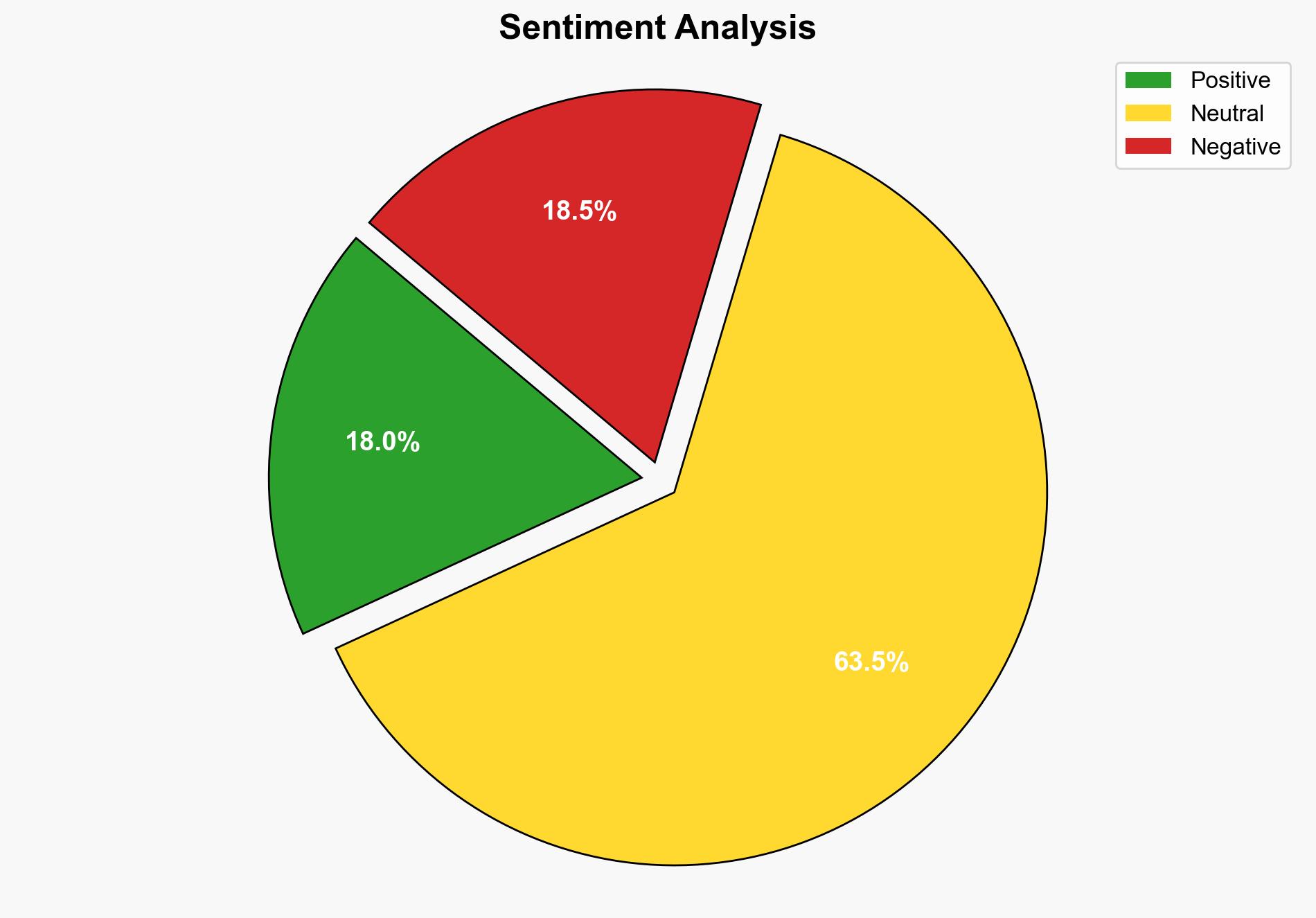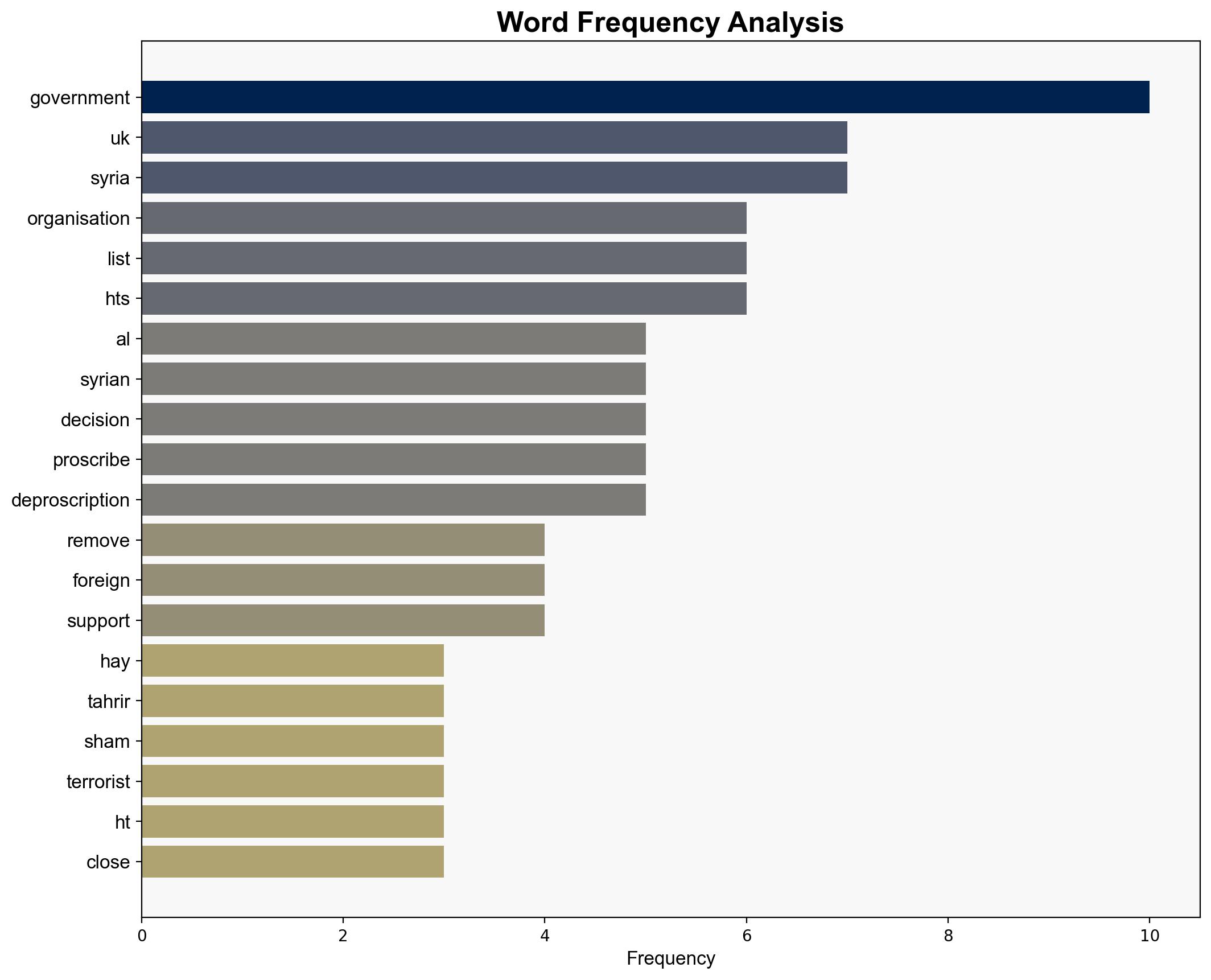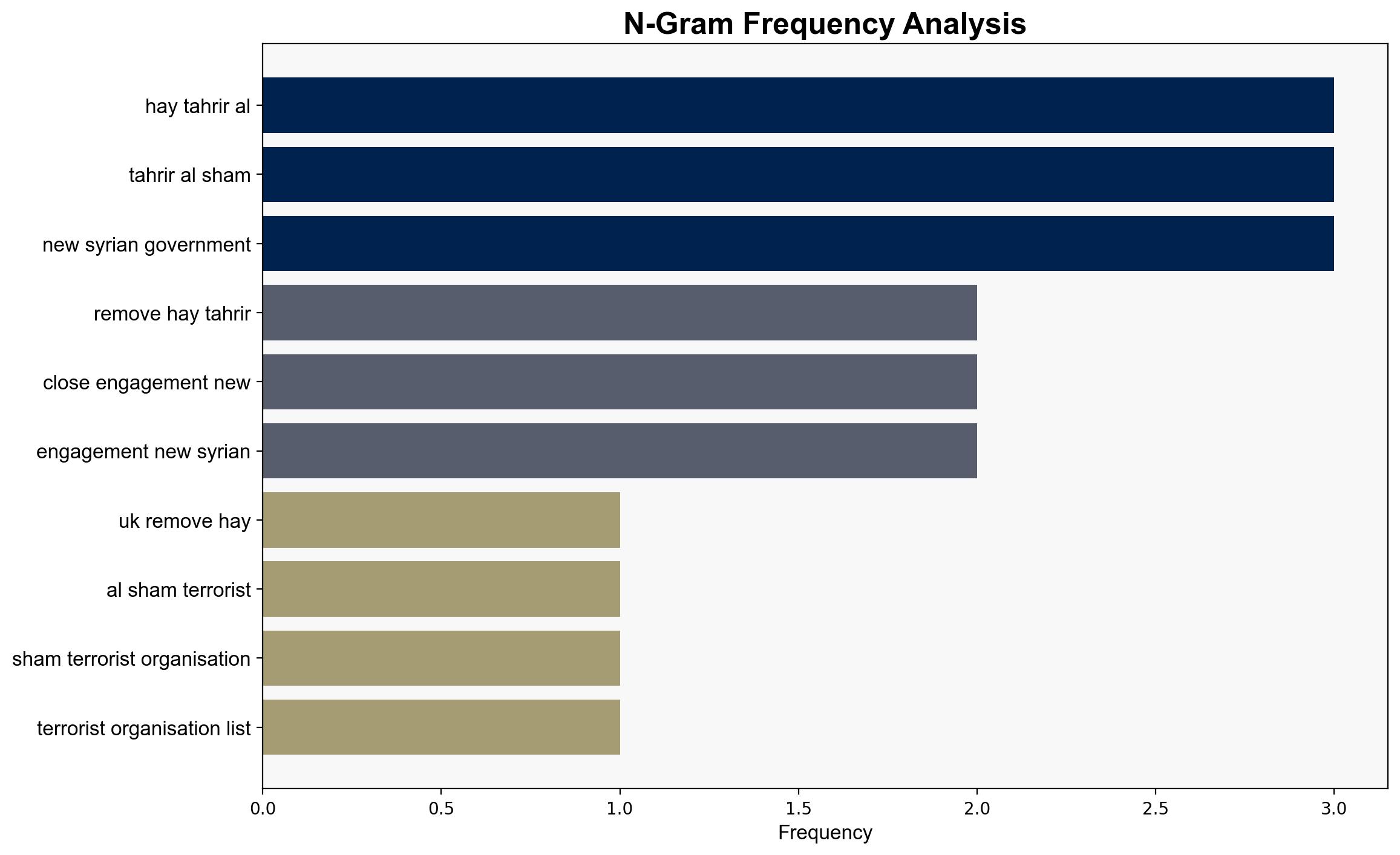UK removes Hay’at Tahrir al-Sham from terrorist organisation list – Globalsecurity.org
Published on: 2025-10-22
Intelligence Report: UK removes Hay’at Tahrir al-Sham from terrorist organisation list – Globalsecurity.org
1. BLUF (Bottom Line Up Front)
The decision to remove Hay’at Tahrir al-Sham (HTS) from the UK’s terrorist organisation list is likely a strategic maneuver to facilitate diplomatic engagement with the new Syrian government and to support broader counter-terrorism objectives in the region. The most supported hypothesis suggests this move is aimed at fostering cooperation to counter Daesh and dismantle Syria’s chemical weapons program. Confidence level: Moderate. Recommended action: Monitor HTS activities closely and reassess the decision if new threats emerge.
2. Competing Hypotheses
1. **Hypothesis A**: The UK deproscribed HTS to strengthen diplomatic ties with the new Syrian government, facilitating cooperation on counter-terrorism and chemical weapons issues.
2. **Hypothesis B**: The deproscription is primarily a tactical decision to isolate and counter Daesh more effectively by leveraging HTS’s influence in the region.
Using ACH 2.0, Hypothesis A is better supported due to the alignment with UK foreign policy priorities, including diplomatic engagement and chemical weapons destruction. Hypothesis B lacks direct evidence of HTS’s role in countering Daesh beyond general regional influence.
3. Key Assumptions and Red Flags
– **Assumptions**: The UK assumes HTS will act as a cooperative entity in counter-terrorism efforts and that the new Syrian government will uphold commitments to dismantle chemical weapons.
– **Red Flags**: Potential over-reliance on HTS’s cooperation and the new Syrian government’s stability. Lack of detailed intelligence on HTS’s current operational capabilities and intentions.
– **Blind Spots**: Insufficient understanding of HTS’s internal dynamics and possible factionalism that could undermine UK objectives.
4. Implications and Strategic Risks
– **Geopolitical**: The decision could strain relations with allies who view HTS as a threat. It may also embolden other groups if perceived as a weakening of counter-terrorism resolve.
– **Security**: Risk of HTS exploiting deproscription to expand influence or resources, potentially destabilizing the region further.
– **Economic**: Potential impacts on UK-Syria trade and investment if diplomatic relations improve.
– **Psychological**: Public perception risks if HTS engages in activities contrary to UK interests.
5. Recommendations and Outlook
- Enhance intelligence sharing with allies to monitor HTS activities and intentions.
- Develop contingency plans for rapid response if HTS deviates from expected cooperative behavior.
- Scenario Projections:
- Best Case: HTS cooperates fully, leading to significant counter-terrorism gains and regional stability.
- Worst Case: HTS exploits deproscription to strengthen its position, undermining UK and allied interests.
- Most Likely: Mixed outcomes with partial cooperation, requiring ongoing diplomatic and intelligence efforts.
6. Key Individuals and Entities
– Ahmed al-Sharaa (Syrian President)
– Hay’at Tahrir al-Sham (HTS)
7. Thematic Tags
national security threats, counter-terrorism, regional focus, geopolitical strategy




